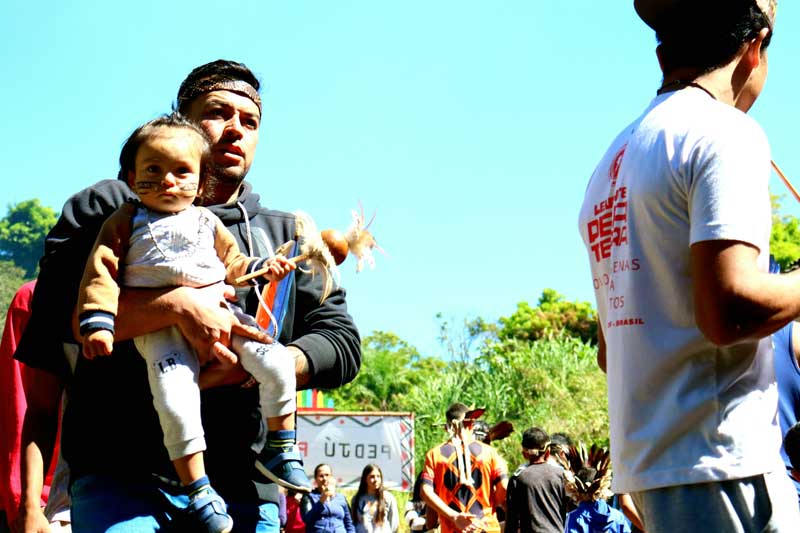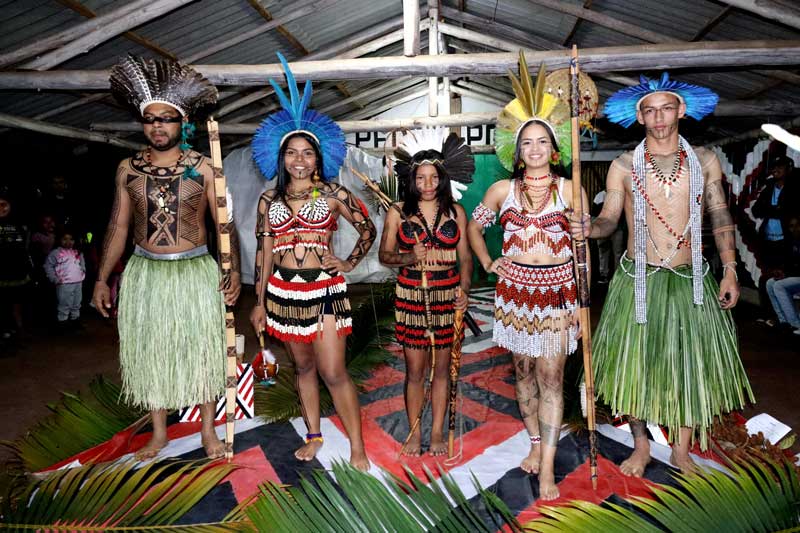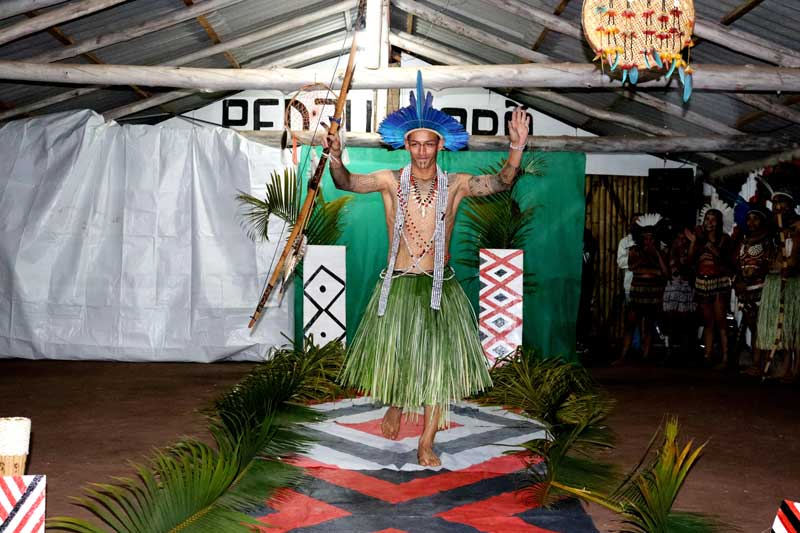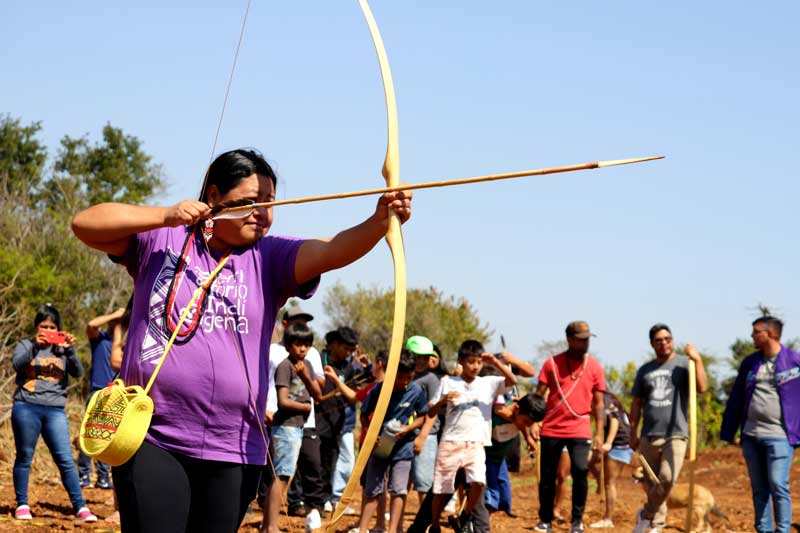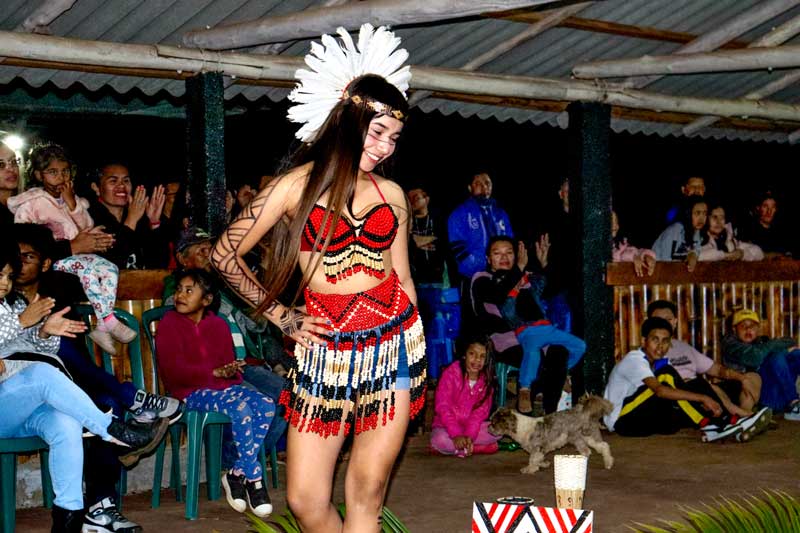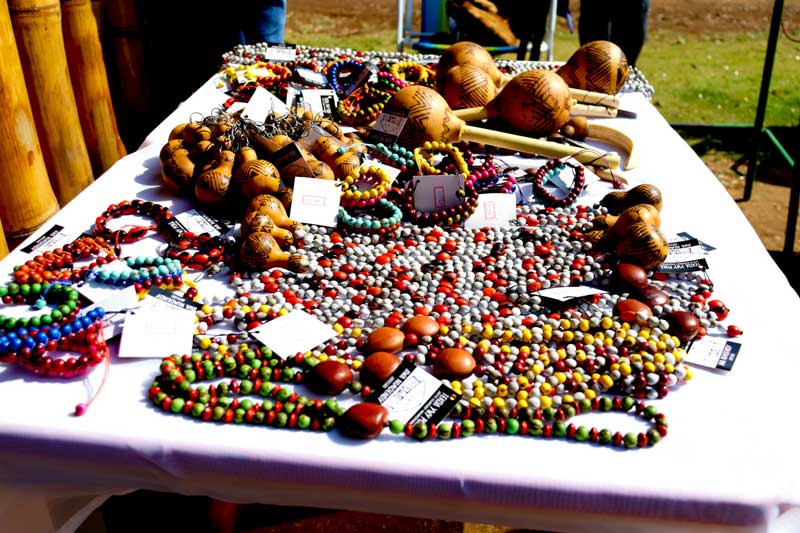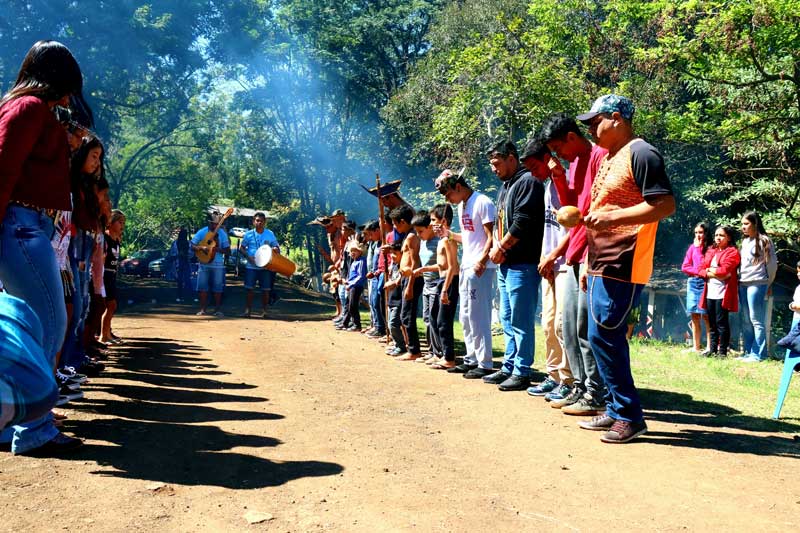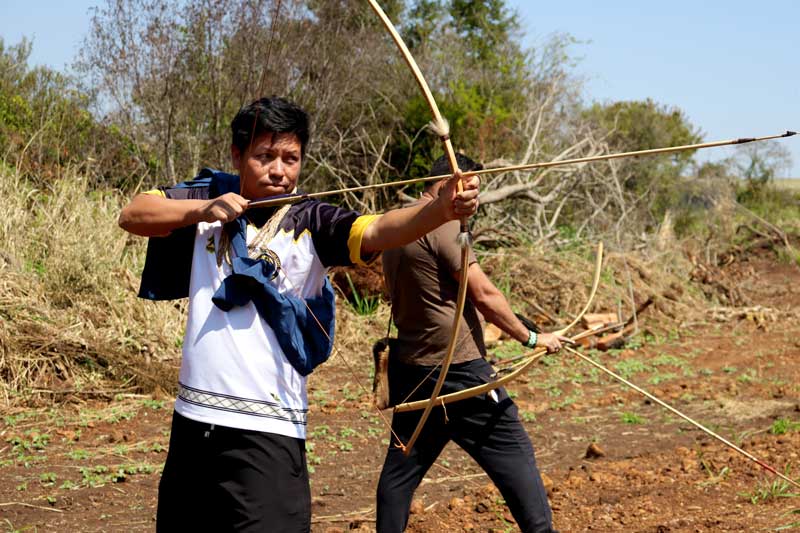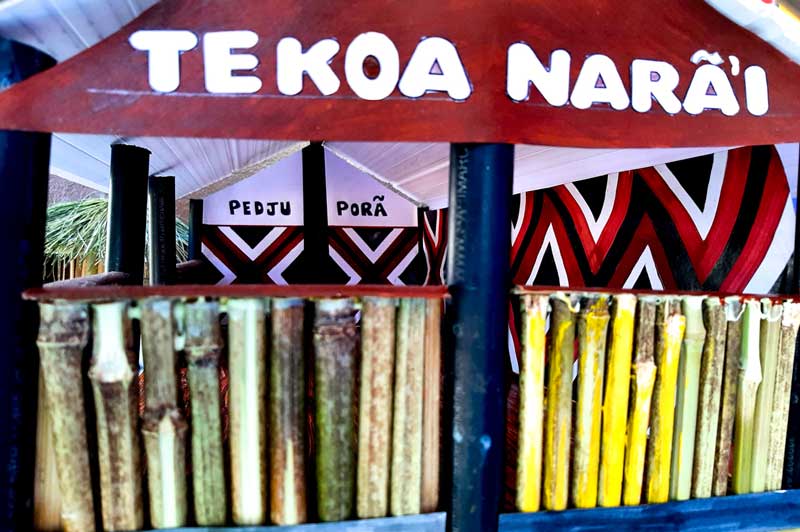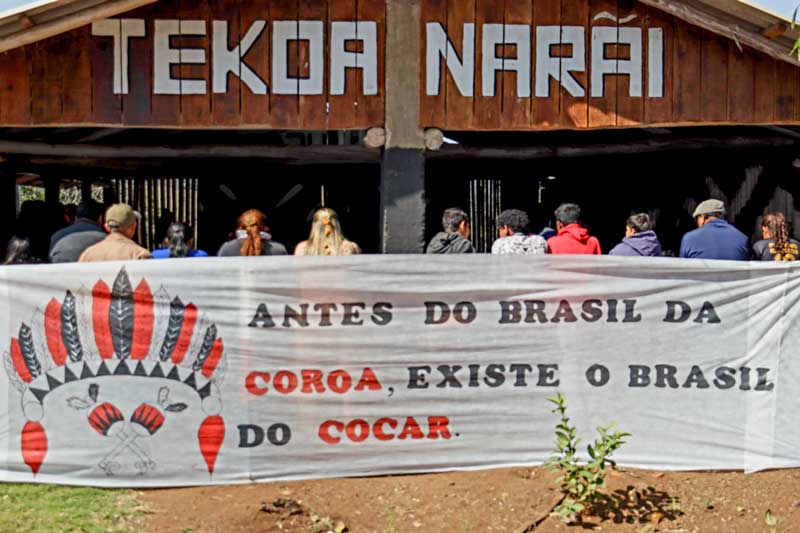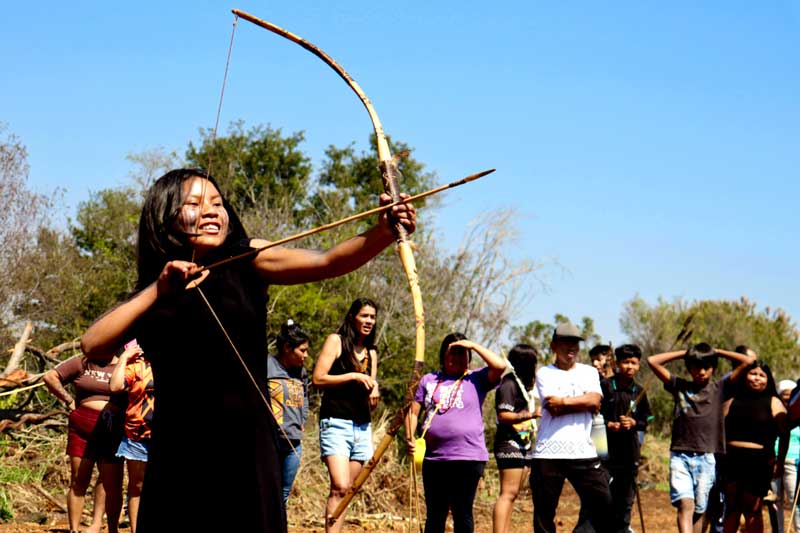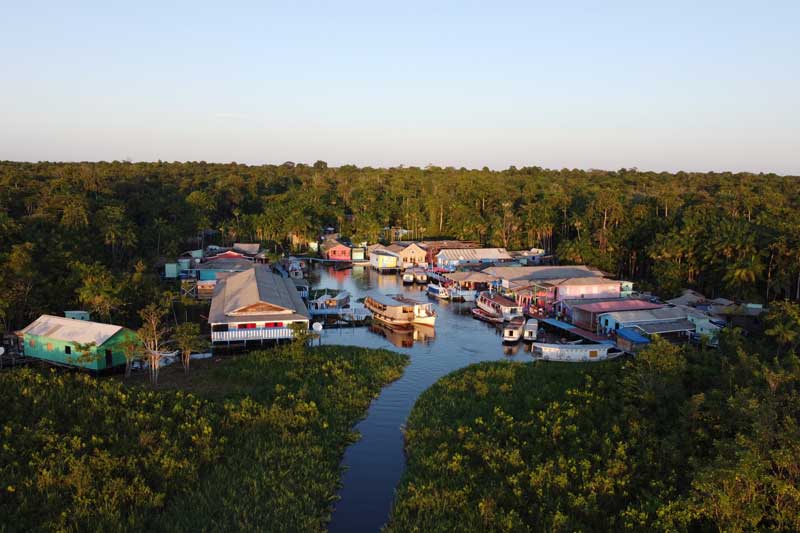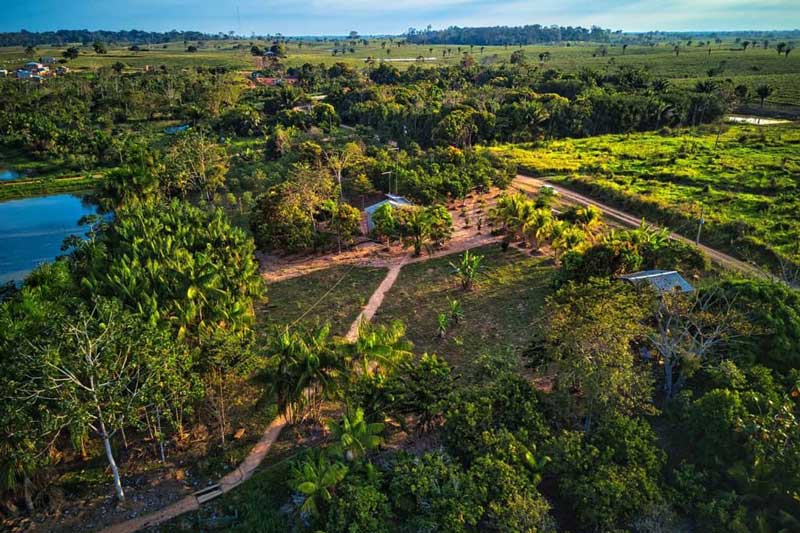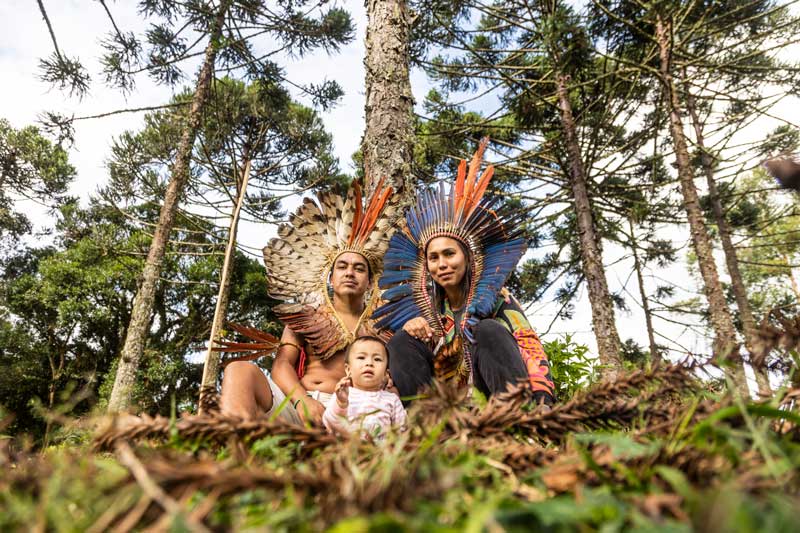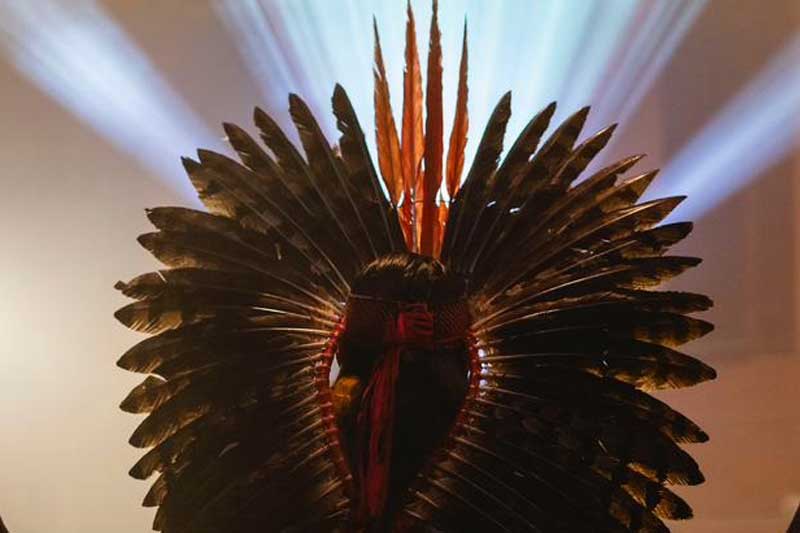This partnership between the Alok Institute and the Guarani Nhandewa people aims to contribute to their cultural strength through the revitalization of customs, habits, beliefs, artistic expressions, and the preservation of the original Guarani Nhandewa language spoken by this people who live in the Laranjinha Indigenous Territory (Northern Paraná, Southern Brazil).
Facing an intense destruction of their natural resources due to logging and the opening of agricultural and pasture lands in the since the 50s,the Nhandewa people remain resisting.
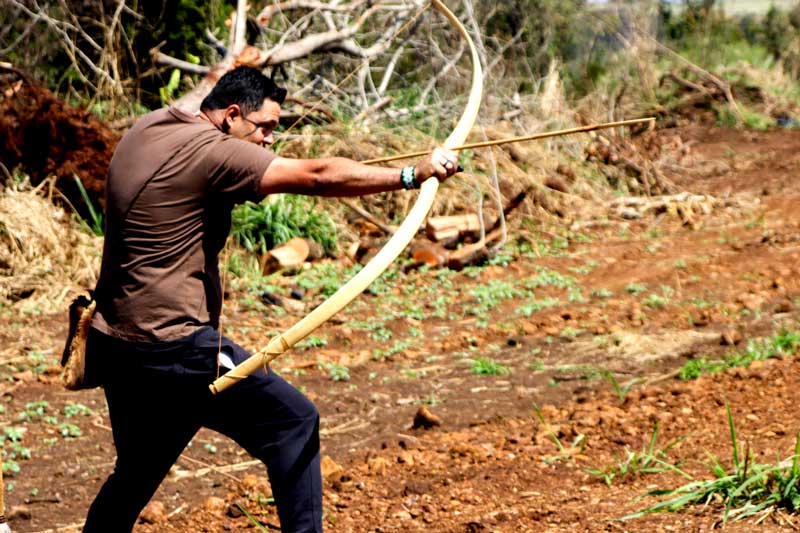
Our support aims at three cultural events that bring together the village elders and leaders with children, youth, and adults, encouraging the revitalization of traditions and worldviews for the future generations’ way of life. The events will involve the entire Guarani Nhandewa community and seek to attract the presence of other indigenous and non-indigenous peoples.
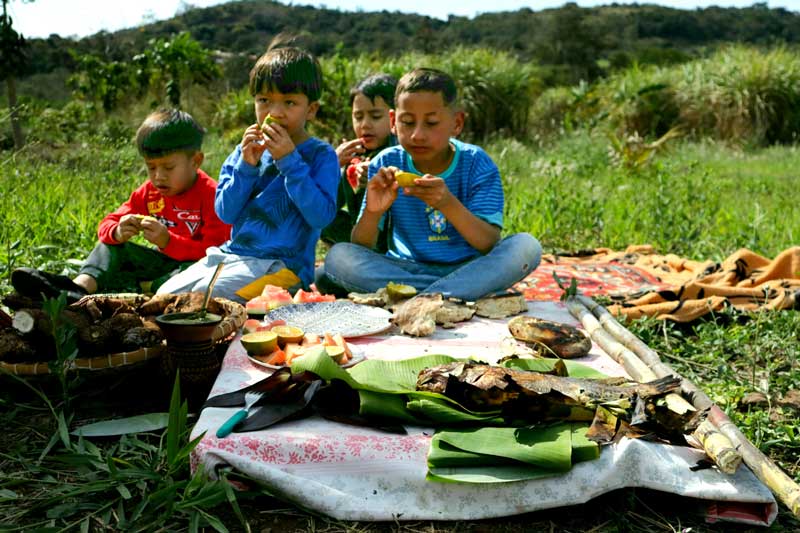
During the events, the following activities will take place:
– Cultural lectures with the presence of elders and indigenous leaders
– Traditional dances
– Typical foods
– Guided trails through the forest and rivers
– Traditional paintings
– Sale of handicrafts
– Sports practices
– Presentation of Guarani Nhandewa chants
The cultural gatherings are scheduled for November 2024 and April / September 2025.
The collaboration with DJ and music producer Alok on the track “Pedju Kunumigwe” from the album The Future is Ancestral features the Guarani Nhandewa people. The song was nominated for the 2024 Latin Grammy.
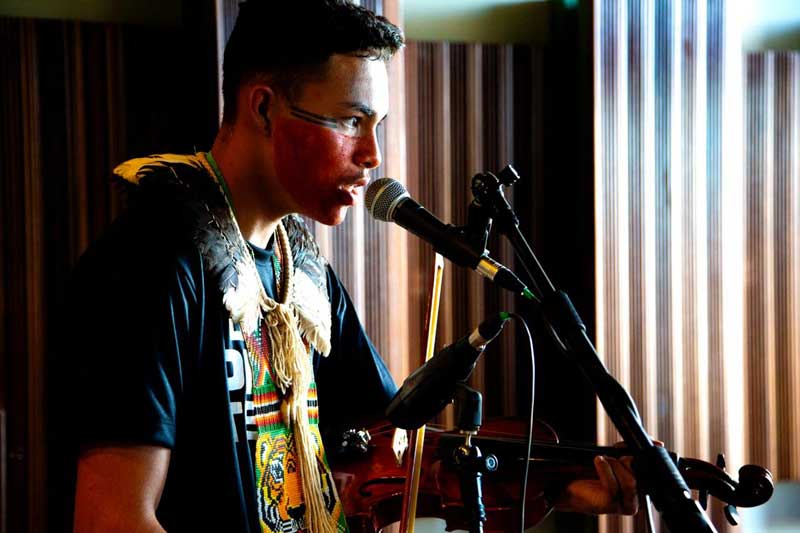
About the Guarani Nhandewa People
The Guarani Nhandewa ethnic group is part of the Guarani ethnic subgroup present in Brazil (alongside the Guarani Kaiowá and Guarani Mbya), with different linguistic forms, customs, ritual practices, political, social, and religious organization.
The Guarani Nhandewa, who inhabit the Laranjinha Indigenous Territory in northern Paraná, have been subjected to intense destruction of their natural resources due to logging and the opening of agricultural and pasture lands. However, from the late 1990s, the community decided to manage certain areas for the purpose of restoring native forests. The (re)created forest has allowed the expansion of resources, contributing to the redefinition of social identity and the revaluation of their traditions.
The community occupies one of the smallest demarcated indigenous territories in Brazil. Over the years, Guarani families have multiplied, and the basic survival conditions based on farming work have not met the community’s basic needs.
